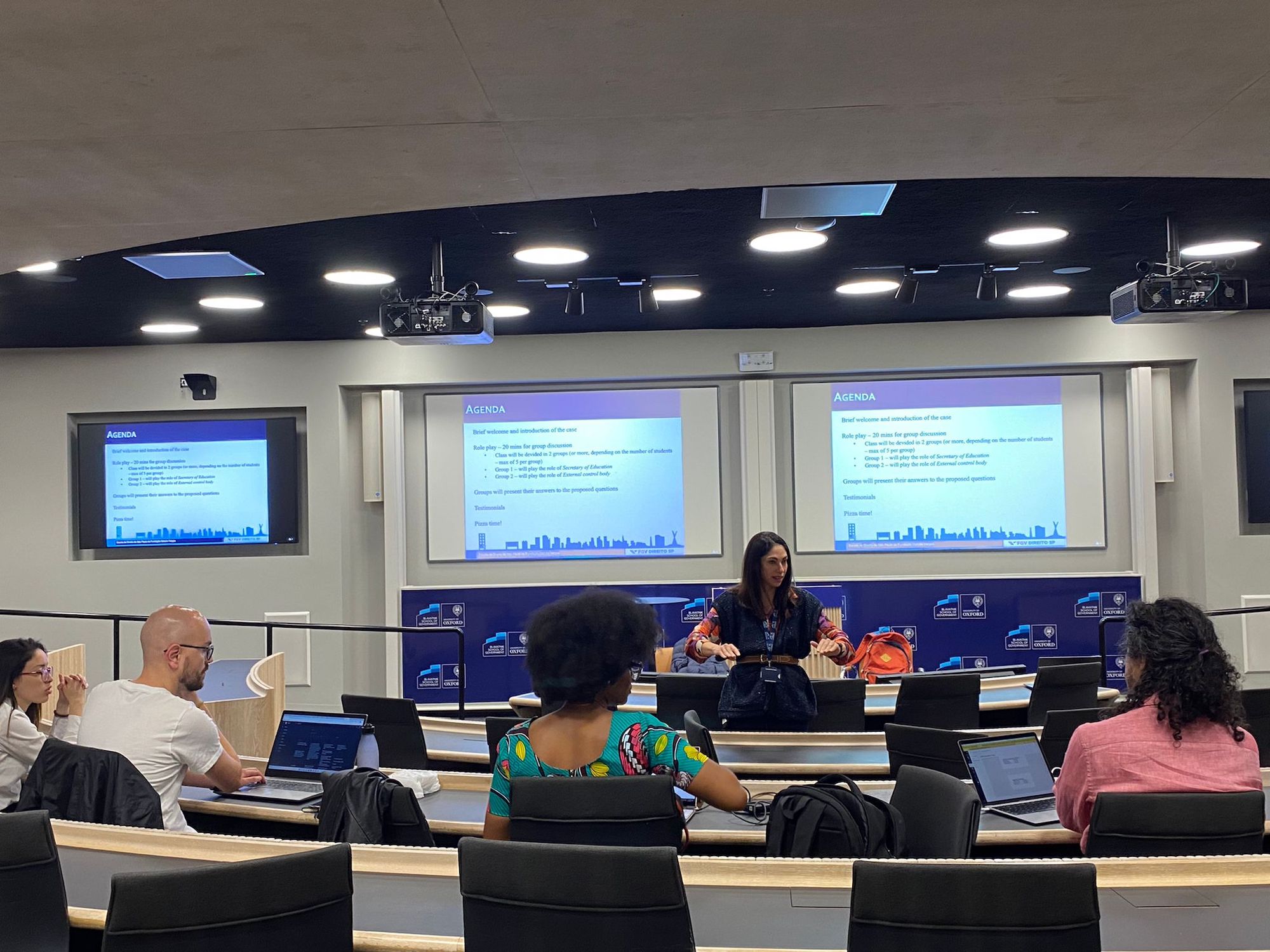Why public managers in Brazil are feeling paralysed
Vera Monteiro, Lemann Foundation Programmme Visiting Fellow and a professor at Fundação Getúlio Vargas in Brazil, studies the consequences of the overreach of control bodies on the public service.

Who controls the controller? The age-old question has gained renewed relevance in Brazil, as civil servants and managers in the public sector complain about the effects caused by the phenomenon known as “apagão das canetas” (a “shutdown of the pens”, directly translated from the Portuguese).
The term describes a lack of decision-making and generalised paralysation of processes, which some public managers say is slowing the Executive branch to a halt. They blame the control bodies for making them feel too insecure to take responsibility for the creation and delivery of public policies, as they fear undue sanctions.
The issue is on the top of the research agenda of Vera Monteiro, who teaches Administrative Law at Fundação Getúlio Vargas in São Paulo and spent six weeks at the Blavatnik School recently as a Lemann Foundation Programme Visiting Fellow.
“The new normal in Brazil is for control bodies to unceremoniously interfere in the merit of decisions through the use of abstract concepts and by giving themselves ample powers of discretion”, says Vera.
She is careful to point out that corruption is in fact a huge problem, and that control bodies have a crucial role to play in that fight. The problem emerging in the Brazilian context, however, is one of overreach, and some of the behaviours of these bodies appear to be creating unanticipated negative impacts on the quality of public policy.
Brazil’s 1988 Constitution empowered control bodies, but within a conflicting and overlapping maze of responsibilities and jurisdictions. Add to that the higher salience of anti-corruption initiatives in recent years, and, over time, judicial challenges have become part of daily life for civil servants. The consequences are showing in terms of inertia, extreme risk aversion, worsened decision making and the stifling of innovation in government.
Often public managers fear that going about their jobs in a legitimate way might come back to bite them years later, in the form of burdensome lawsuits over honest mistakes made by others further down the chain, or retrospective questioning of decisions for which there were multiple reasonable options. Without a means to insulate themselves against these risks, the preferred response of many is to avoid responsibility for public policies, and not sign anything (hence the phrase, to “shutdown their pen”).
The weakest link, in Vera’s opinion, ends up being the honest civil servant, who does not get the benefit of the doubt for what are sometimes hard or ambiguous decisions, and is therefore left exposed. Some of the expensive lawsuits that civil servants have faced have appeared years after they left public service, and then have dragged on for long periods of time, costing individuals huge sums in lawyers’ fees. There are reports of civil servants refusing promotions to avoid risk or taking out insurance for acting in bureaucratic roles.
These difficulties, balanced against the strong need for effective policies to fight corruption, were explored in a workshop led by Vera recently at the Blavatnik School. MPP students at the workshop played either the role of a public manager in education or of a control body, in a scenario in which the fast-track contracting of an education service during the pandemic was challenged.
After some brainstorming over the risks and benefits of taking different courses of action, both groups of students reached a tentative solution: to bring the control organs inside the decision-making process very early on, to avoid future troubles.
Vera pointed out that this response comes with its own risks, often unrecognised, because there is a blurring the divide between the responsibilities of managers and controllers. In ceding decision-making privileges to professionals who are focused only on risk avoidance and untrained in creating effective public policy, the invisible counterfactual of better policy outcomes may be less likely to be achieved.
Future avenues of research, discussed by Vera with the teaching staff during the Blavatnik School of Government Research Showcase, include finding ways to measure both the positive and negative impacts of control bodies rigorously, as well as the effects of this problem in driving talent away from the public sector.
João Pedro Caleiro is Research Assistant for the Lemann Foundation Programme and an alumnus of the Master of Public Policy class of 2020.

